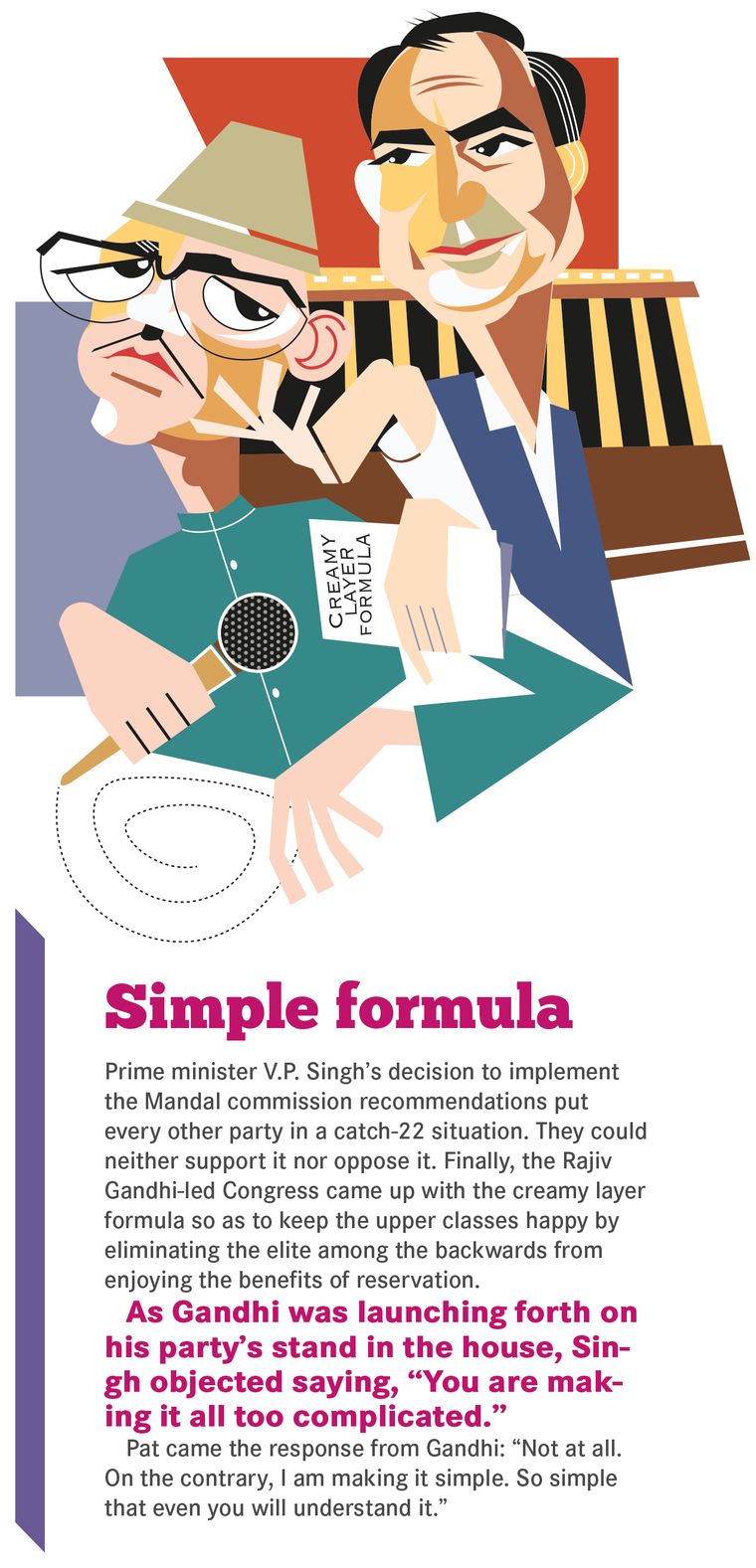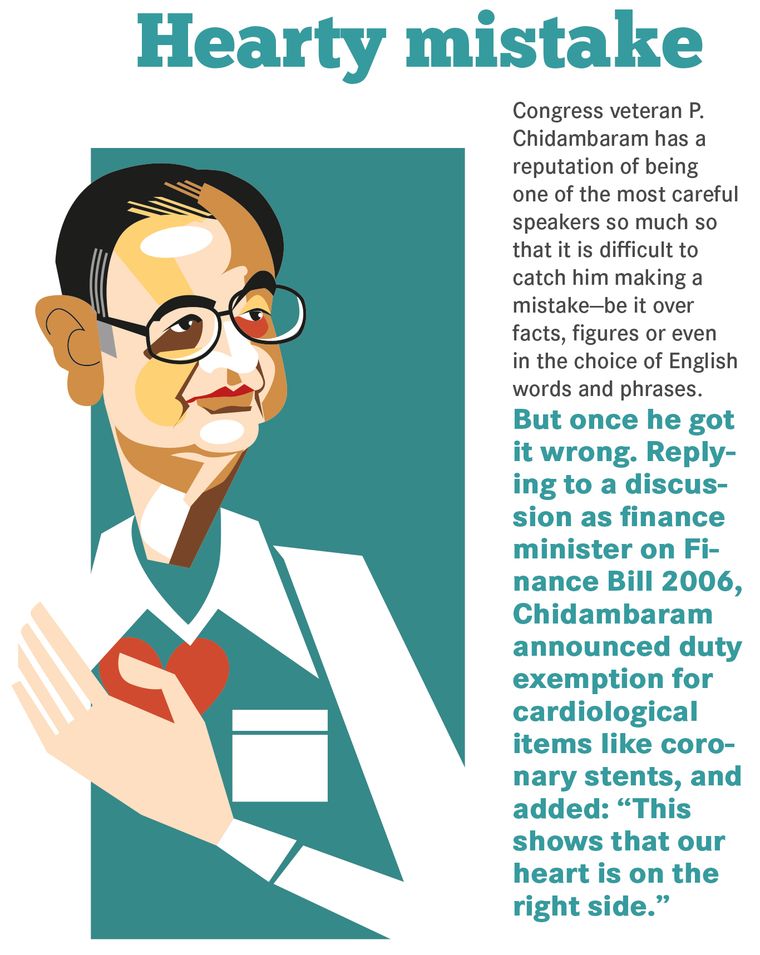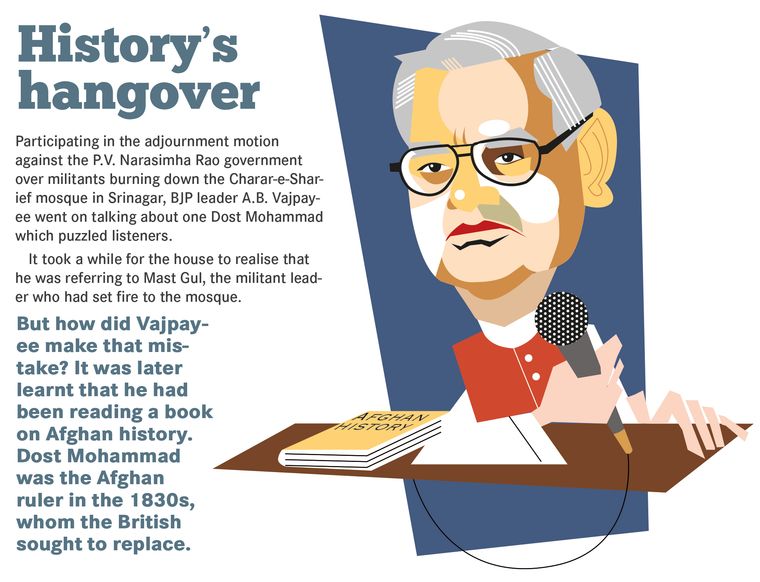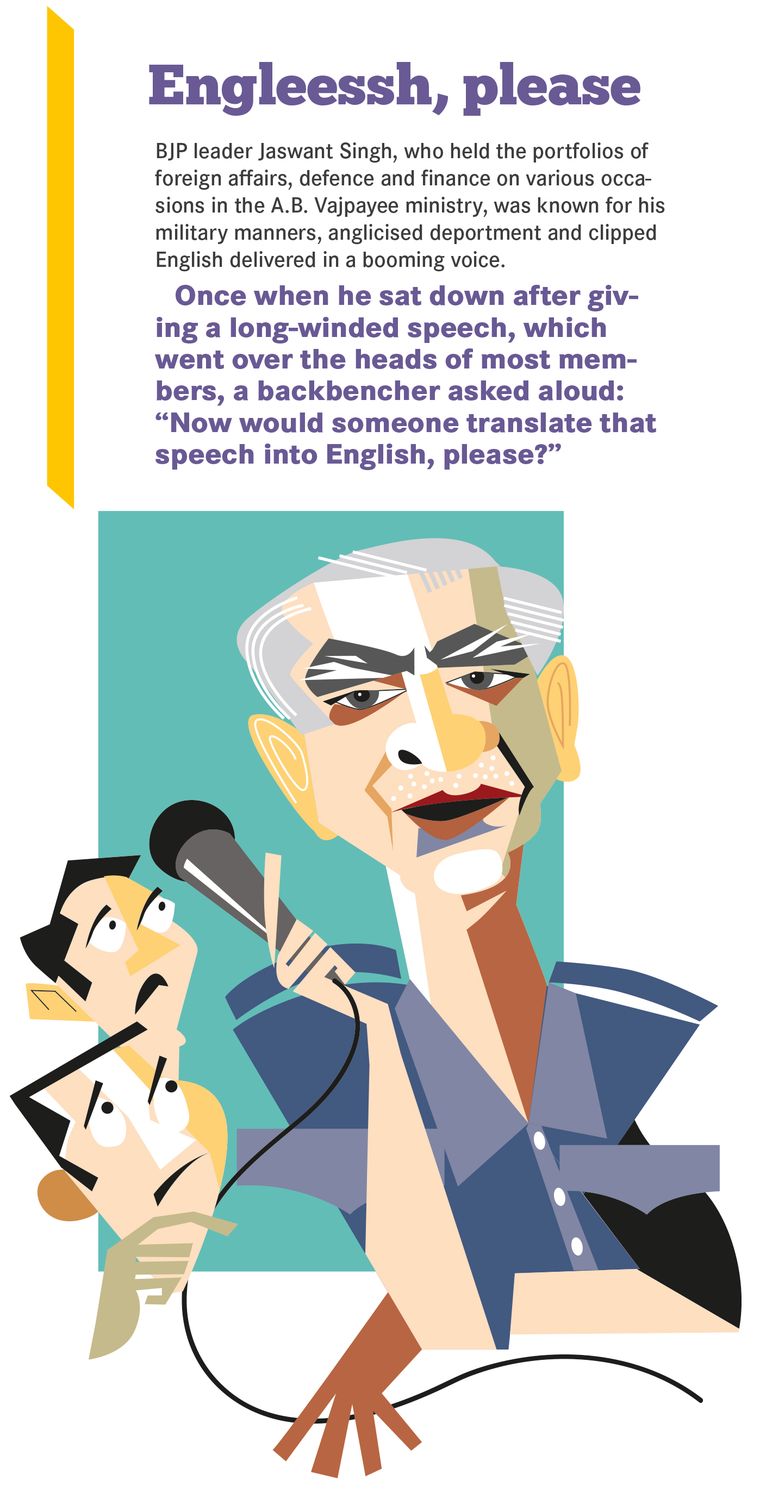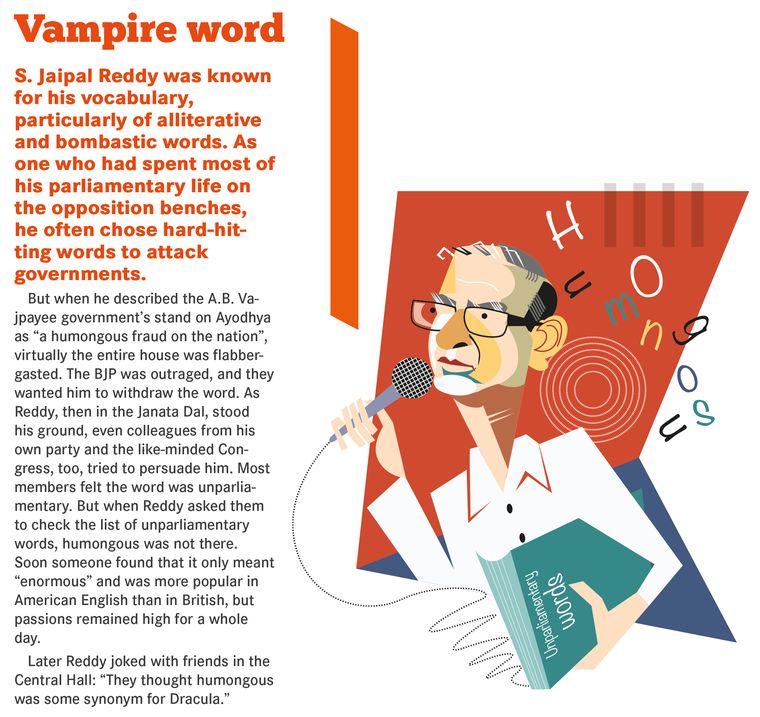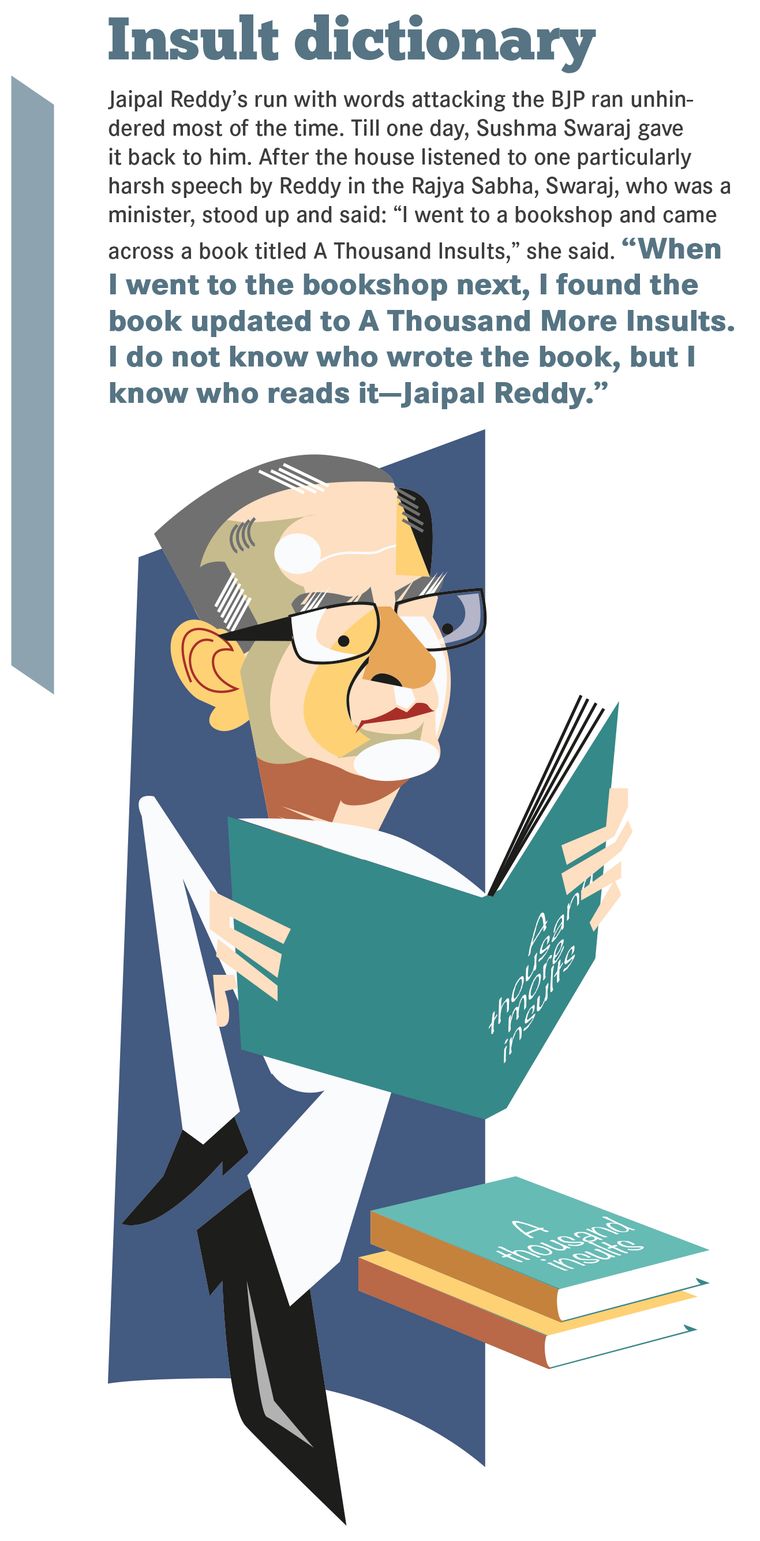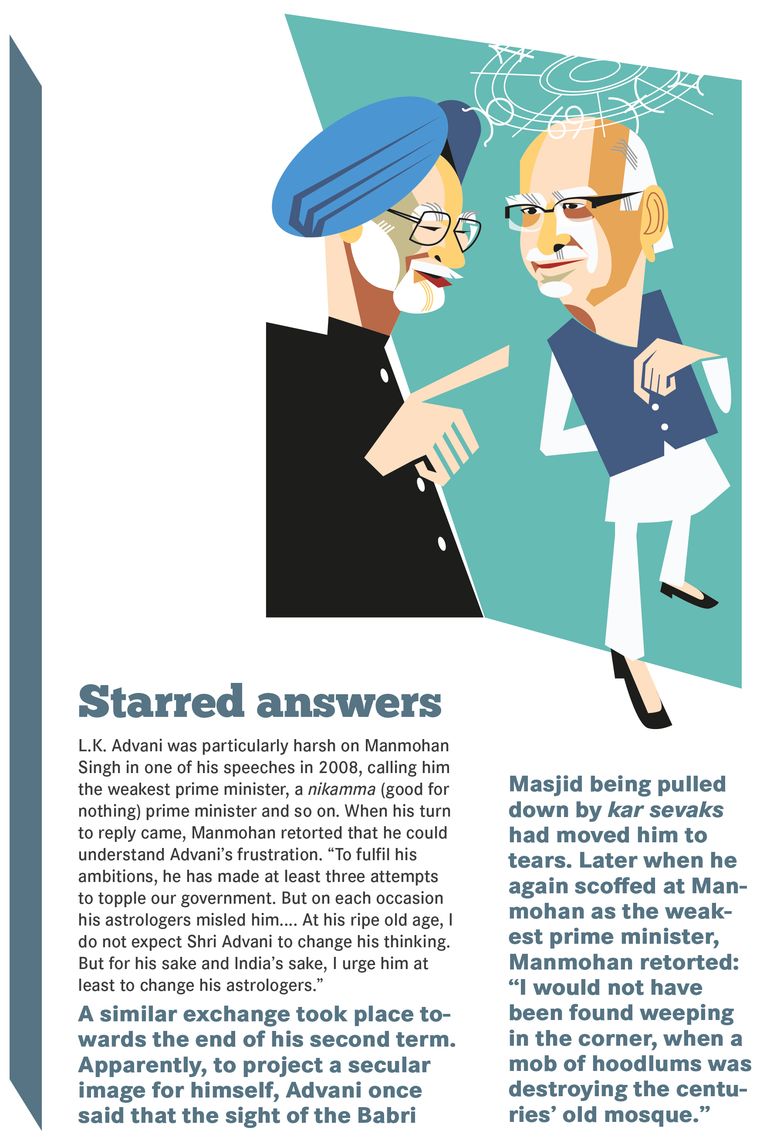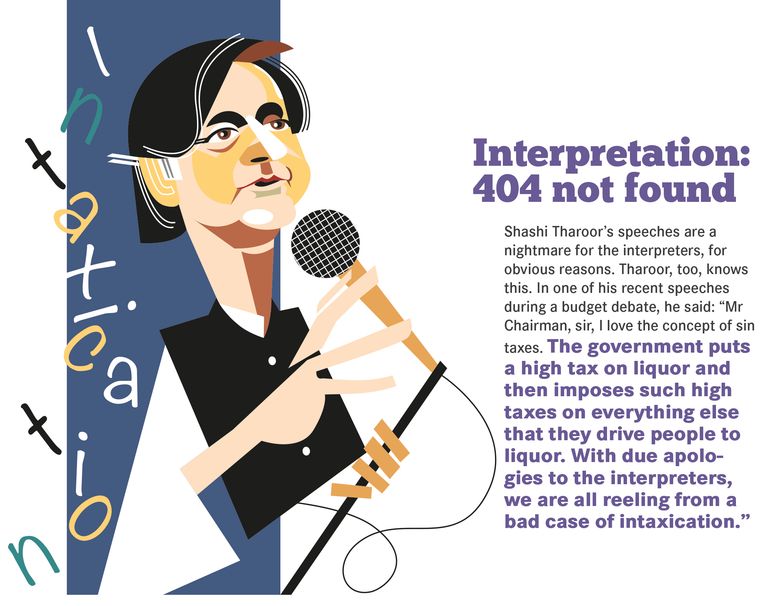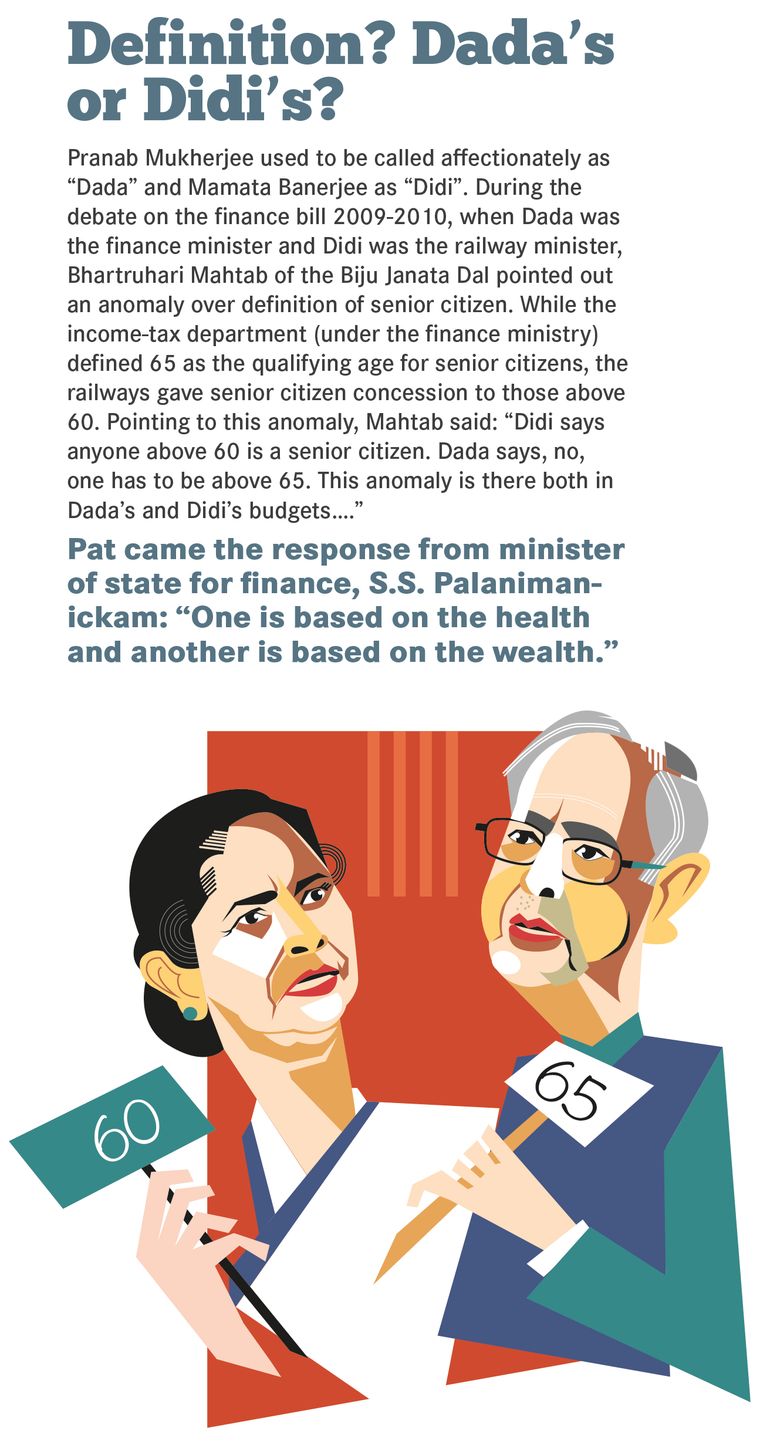The problem with discussing humour in Parliament is that most people think all the wisecracks were made in the British Parliament, half of them between William Gladstone and Benjamin Disraeli in the 19th century, and the remaining half by Winston Churchill in the 20th. And that the Indian Parliament is a pandemonium or, as a trial judge in Delhi infamously described it while denying bail in a criminal case to Kalpnath Rai, MP, “a fish market”.
Prime Minister Narendra Modi has been lamenting far too often about the falling standards of humour in Parliament. The problem however is that he has not done much to arrest the fall.
Modi is said to be a humorous man (critics in the Congress would say, funny man), but not much so in Parliament. His speeches, in public meetings as well as in Parliament, drip with irony and sarcasm which draw laughter, but he is not one for light-hearted banter that makes a good Parliament great. There is much earthy humour in Modi, at times malicious too, but he has hardly come out with any great repartee of the Gladstone-Disraeli kind in the house, or any nasty Churchill-style put-downs.
Modi says he has been shy of being humorous in the house for fear of his remarks being “twisted out of shape,” and so he expends his humour on his colleagues and officers in private chats. Come to think of it, most of our prime ministers have been like that—muscularly mirthless in Parliament, though they all have been reputedly humorous in their private lives. Indira Gandhi, whom Modi has taken after in his style of personalised governance, was said to have been very humorous in private chats (“one ought to count one’s fingers after shaking hands with him,” she told an aide after a handshake with Pakistan’s military ruler Mohammad Zia-ul-Haq), but Parliament records have not much to show in terms of light banter or any great repartee from her.
H.D. Deve Gowda took the cake for not just being mirthless, but for being distressingly and depressingly melancholic. He always looked not as if he had taken any cake, but swallowed a bitter pill.
Rajiv Gandhi and A.B. Vajpayee seem to have been two exceptions among the prime ministers of the recent decades; both of them indulged in good-humoured banter and repartee in the house. And both liked being laughed at too, as Rajiv, who had just returned from another of his several foreign tours, did when Telugu Desam Party leader P. Upendra welcomed him “on one of his rare visits to New Delhi”.
Instances of such banter being enjoyed by all might be rare, but a fish market the Indian Parliament has never been. Indeed, prime ministers have had little to claim credit for. The laugh has always been on and by lesser members, but not necessarily backbenchers. It has always been the house veterans—men and women who have been leading large or small parliamentary parties or living as legislative creatures for a few terms—who have been making the Indian Parliament a genteel club of camaraderie.
Or, if you think the Indian Parliament has indeed been a fish market, well then, it has been a fairly feisty fish market. It may have had its moments of infamy, but those were no match for, or not a patch on, the kind of infamous instances that several other parliaments, including the mother of all, have had. Why, speakers in the British Parliament have been executed and murdered (a reason why their speaker-elects are “dragged” to the chair), and members have fought with swords (that is why the gangway between the treasury and opposition benches in Westminster is traditionally two sword-lengths wide).
Such violence has never been witnessed in the Indian Parliament. Our speaker-elects are escorted to the chair by the leader of the house and the leader of the opposition—a custom said to have been inspired by the British tradition of the speaker being dragged by the duo. Our treasury and opposition benchers sit much closer than two sword-lengths, and the closest that any honourable MP came to being lethal, at least in recent times, was when Lagadapati Rajagopal, the Congress member from Vijayawada in the 15th Lok Sabha, shot a jet of pepper spray in his desperate bid to block the Telangana bill six years ago.
It is another matter that some of our state legislators have tried to settle debates with their biceps, but even those houses have not descended to the depths to which the Parliament of Ukraine recently did with some of the rowdiest scenes that have ever been staged in any house of any repute anywhere in the world.
Believe me, most of our MPs are nice people to know, many of them learned, well-read and wise, and most of them full of mirth, warmth and goodwill (though, indeed, a few are full of themselves). Indeed, political battles are fought on the floor of the house with much bitterness in words, phrases and intent, but the malice melts in the moments of mirth that occur far too often. Political lore has it that Manmohan Singh used to get offended by the criticism from the opposition during his early days as P.V. Narasimha Rao’s reformist finance minister, and that it was Rao who asked opposition leader Vajpayee to meet Singh and mollify him.
Unfortunately, the public does not get to see much of the camaraderie because it happens when the cameras are switched off, as it happened three years ago when Modi, in a rare instance of reach out, walked across to Singh’s seat and shook hands after the Congress launched a bitter attack on his economic policies.
Such instances had been common earlier. The moment the house is adjourned, one could see (not on TV unfortunately) members who had been fighting like cats and dogs reaching out to each other, slapping on backs, and laughing their way to have coffee together in the Central Hall, or to pinch a cigarette from each other in the smoking room. As N.K.P. Salve, one of the finest debaters that the Rajya Sabha has had, once said in the house: “You see us here, and you may have one opinion about us. But if you see us in the lobbies and the Central Hall devouring [sweets and coffee together], that... would surely impel you to feel that we are the greatest gentlemen on the earth.”
Much of the camaraderie in Parliament cuts across party lines, the most legendary one in recent decades being the one between Cambridge comrade Somnath Chatterjee and BJP’s Hon. Jaswant Singh Esq. The two, both anglicised gentlemen, would be impaling each other with words in the house, but the moment the house is adjourned the two would walk out together for a coffee in the Central Hall. If Mamata Banerjee and Margaret Alva remained thick friends even after the former left the Congress, the kitty bondage between young Supriya Sule of the Nationalist Congress Party and Harsimrat Kaur Badal of Shiromani Akali Dal is creating a new lore of cross-party pairing.
The camaraderie has a lot to do with the sense of humour that most politicians have acquired through years of public life or, as Congress leader Jaipal Reddy once said, they acquire it over years of parliamentary life. Indeed, nasty put-downs of the Churchillian kind are rare in the Indian parliamentary life; on the contrary, the humour in Indian Parliament has been of a softer, nicer and largely well-meant variety intended more to put the other person at ease. Once when BJP’s Venkaiah Naidu felt a little uncomfortable at being stared at by Congress leader Kapil Sibal, the latter put him at ease saying Naidu had a pleasant face. The good humour was reciprocated promptly with Naidu telling Sibal: “Nobody tells me that I have a pleasant face; not even my wife.”
Names, especially uncommon ones, often lend to humour. Once CPI(M)’s M.A. Baby was congratulating Najma Heptulla on one of her several elections as deputy chairman of the Rajya Sabha. Baby used the occasion to humour her and seek her indulgence while running the house. “You are charming and firm,” said Baby. “I hope you will be indulgent, too.” A laughing Heptulla replied: “I will be, specially to babies.”
Congress leader Mallikarjun Kharge once made use of his name (Mallikarjun is another name for Parameshwar) to put down the BJP’s Bishnu Pada Ray. When he found that Bishnu Pada was frequently interrupting him, Kharge said, “You are Vishnu. Vishnu and Parameshwar never agree with each other. But kindly wait till Parameshwar finishes what he has got to say.”
Running the house often is a nightmare. It needs not only knowledge of rules and conventions, but also tact. A sense of humour, especially if one can laugh at oneself, would really help. Heptulla had that in abundance. Taking part in the debate over the Insurance Regulatory and Development Authority Bill, 1999, the CPI(M)’s hoarse debater Nilotpal Basu spoke of how Marlene Dietrich got one of her pretty legs insured with Lloyds of London. Could Sachin Tendulkar similarly insure his wrist and Yehudi Menuhin his arm? he wondered. From the chair Heptulla intervened: “I wish somebody could insure my throat and my finger which presses this button, because these are the two most important things needed for the running of the house.”
Even nasty put-downs, if they come from venerable elders of the house, can put the house at ease. Once CPI veteran Indrajit Gupta was launching a bitter attack on the BJP for its communal politics, and its RSS-inspired ideas of Indian life and culture. “Why bring in the RSS here?” asked a BJP member. “You are all products of the RSS,” retorted Gupta. As the house erupted into pandemonium, one BJP backbencher shouted aloud: “I am not.” An amused Gupta laughed out and said: “Very well then, stand up and be counted.” In a moment the pandemonium turned into light-hearted laughter. The rancour ended then and there, and the house proceeded smoothly.
Pramod Mahajan, who is missed not only by the BJP but the entire house, had a way of building up mirth and laughter while also scoring political brownie points. Speaking against the confidence motion moved by the Deve Gowda government in 1997, he recalled, or made up, a story about one of his visits to China with a parliamentary delegation. “There were three of us. When I introduced myself as from the largest party in Parliament, our host assumed mine was the ruling party. I said no. Next came the turn of the Congress MP who claimed to be from the second largest party. ‘Then you must be from the ruling party?’ asked our host. He said he was not, and pointed to the member from Janata Dal who was from the ruling party which was the smallest of the three. I do not know what kind of an impression our host gained about our democracy,” concluded Mahajan amid laughter.
The tug-of-war between speakers of English and Hindi often leads to moments of mirth. But once when MP from Manipur, Dr Thokchom Meinya, pleaded that he had not heard Speaker Sumitra Mahajan calling him because “Madam, it is bit difficult for me to follow you in Hindi,” Mahajan put him down saying: “I only called your name. Is it not the same in English and Hindi?”
Despite the partisan rancour with which members often have to treat those from other parties, there are also certain gentlemanly rules that render the house a genteel club at times. For instance, it is a sacred convention that any member making his or her maiden speech is never interrupted, even if he is speaking balderdash. This once led to a humorous situation. When he was called to speak in the debate over the motion of confidence moved by the 13-day A.B. Vajpayee government in 1996, first-time MP Churchill Alemao of United Goans Democratic Party launched forth in Konkani. Speaker P.A. Sangma stopped him saying, he had to give notice a day earlier if he had wanted to speak in any language other than English or Hindi. But Alemao surprised him saying he had taken permission. To the speaker’s query as to who had permitted him, Alemao said, “the pro-tem speaker”.
Apparently, Alemao had got permission to be sworn in in Konkani, which he thought was carte blanche to speak in Konkani throughout the term.
To make matters worse, Alemao continued in Konkani, despite the speaker’s order, and members allowed him the indulgence. Naturally with no translator available, nothing went on record. When he sat down, someone asked, so what did he say? Promptly came a loud remark from a treasury bencher: “He was supporting us.” Alemao’s protests were buried in the sound of laughter.
But the big laugh came two years later during the 1998 general elections. One morning Goans saw Alemao’s campaign ads in their newspapers, describing himself as the first MP who spoke in Konkani in Parliament.
Hit below the belt
While discussing import of bullet-proof jackets for security personnel, V. Gopalsamy (Vaiko, then in the Dravida Munnetra Kazhagam) wanted to know whether bullet-proof pants would also be purchased. Minister of state for home P. Chidambaram took exception to such ridicule, but prime minister Rajiv Gandhi made light of it saying he would get one for Gopalsamy. “What would Gopalsamy do with bullet-proof pants?” wondered A.B. Vajpayee. “It may preserve his chastity,” shot back Gandhi.
Men’s only
V. Narayanasamy of the Congress once accused a Telugu Desam candidate of “manhandling” a woman minister during the elections. But when Narayanasamy refused to name the candidate, G. Swaminathan of the All India Anna Dravida Munnetra Kazhagam asked whether the offender was a man or woman. Pat came the answer from Telugu Desam Party leader P. Upendra: “How can a woman manhandle?”
Terrorising words
Adding an inadvertent word can often create unintended meanings. In a speech in 1996, when there still were terrorist killings in Punjab, the Shiromani Akali Dal’s Sardar Surjit Singh Barnala was making a long-winded speech. The speaker urged him to conclude several times, and finally the grand old sardar said: “Mahodaya, mein jaldi se katham karoonga aapko [I will finish you quickly].” What he intended was aap ke liye (for your sake).



